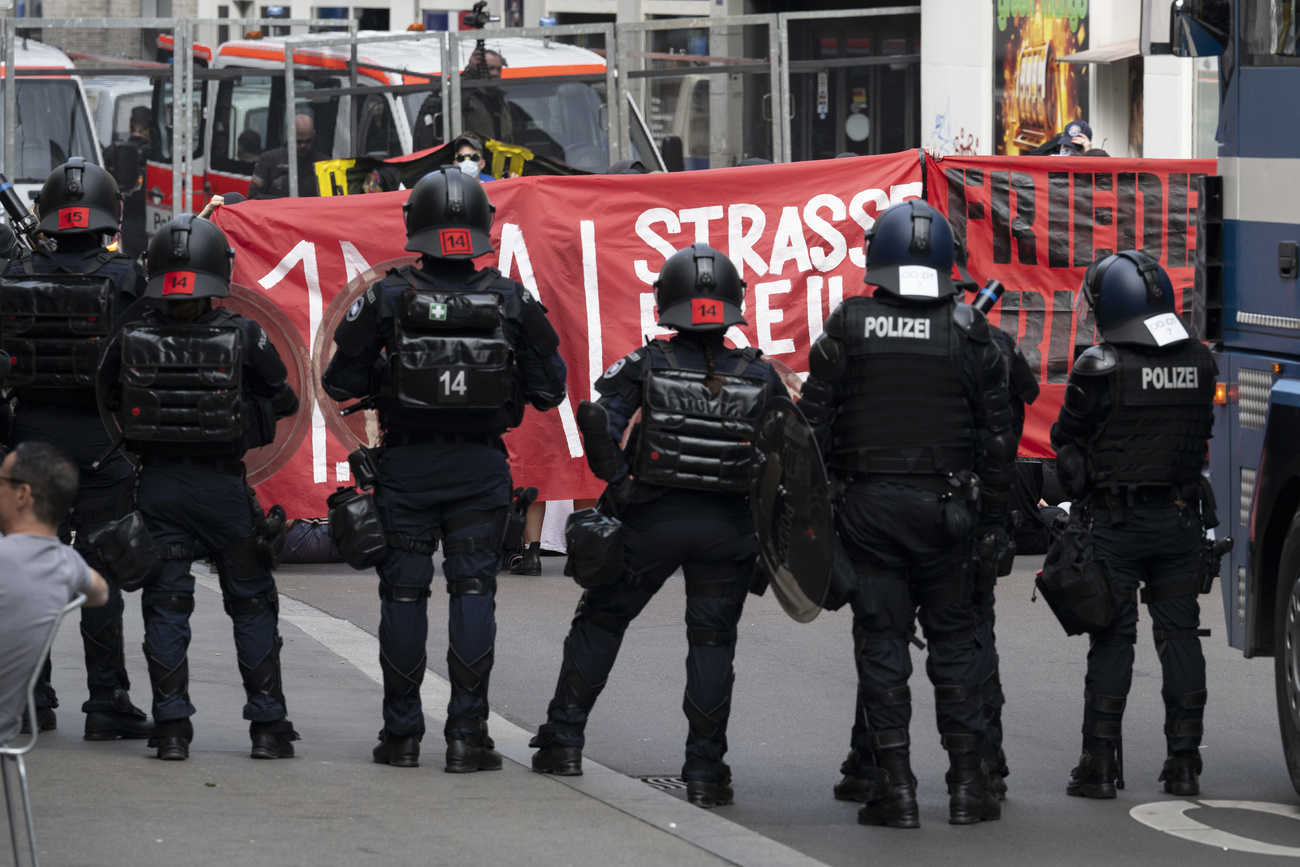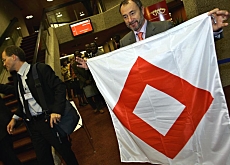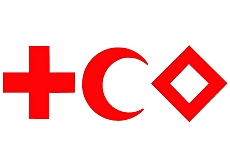Red crystal tests Swiss diplomacy

Swiss diplomat Didier Pfirter tells swissinfo how some Middle East countries reneged on promises to support a new emblem for the global Red Cross movement.
Their decision to withdraw their backing skewered Swiss hopes of adopting the red crystal by consensus.
Ten days ago a landmark cooperation agreement – brokered by the Swiss – was signed in Geneva by the Israeli and Palestinian emergency services.
Many saw this as removing the last remaining barrier preventing all the signatory states to the Geneva Conventions from unanimously accepting a third humanitarian symbol in addition to the red cross and the red crescent.
But Syrian demands for a similar accord with Israel, granting Damascus humanitarian access to its citizens in the Golan Heights, meant the red crystal had to go to a vote.
swissinfo: You have the emblem but you don’t have consensus. Are you disappointed?
Didier Pfirter: Yes. We are certainly disappointed. We are in a way satisfied that the protocol has been adopted very clearly but we are disappointed that this was not done by consensus. We made a tremendous effort to achieve this result by consensus. We did all we could and went to the limits of what was humanly possible and what was possible for a depositary state to do.
swissinfo: You travelled to the Middle East several times. Were you given promises ahead of the conference that some countries did not keep?
D.P.: Yes. We were promised by several countries, both myself, at ministerial level and [Foreign Minister] Micheline Calmy-Rey, that if the Palestinian issue were solved to the satisfaction of the Palestinians they would not oppose the adoption of this protocol. Some of these countries have voted “no” this evening.
swissinfo: When did you realise that the Syria/Golan Heights issue was going to be a problem at this conference?
D.P.: I realised that very early on. I told everyone who wanted to hear it and who didn’t want to hear it. I did go to Damascus twice against the advice of many. We kept steady contact with the Syrian ambassador here in Geneva and also through our embassy in Damascus. We made a genuine effort to solve the Syrian issue.
If it was not solved, this is to a good degree because Syria did not cooperate in the same way that the Palestinians did. Syria was not ready to allow the Syrian Red Crescent to negotiate directly with [Israel’s] Magen David Adom, and it was not ready to allow it to negotiate even indirectly until very recently. And, of course, that did not facilitate our efforts.
swissinfo: Some people will say that the Swiss did not read the signs correctly. Last week everything looked promising and now it has all blown up politically.
D.P.: As you say everything looked promising and we were not alone in thinking that. I think everybody came into this conference thinking that there was going to be consensus. Both me personally and the Swiss government did not stop telling everyone that the Syrian issue was important and needed to be taken into account. We did not stop making efforts to do this. I think there were others who thought that the Syrian issue could be neglected but not the Swiss.
swissinfo: Do you see this outcome as a success or failure for Swiss diplomacy?
D.P.: I think it is a success nonetheless. It is not the success that we would have desired but it is a success in that we have been able to solve a long-standing problem. This latest effort has been ongoing for the past seven years, interrupted by political events, and I think the overwhelming feeling among states party [to the Conventions] was that the time had come. It is unfortunate that the efforts to also bring on board all those who did not feel this way ultimately failed.
swissinfo-interview: Adam Beaumont in Geneva
Switzerland, which is the depositary state of the Geneva Conventions, was hoping to have the new emblem adopted by consensus.
But a row over granting Syria humanitarian access to the Golan Heights scuppered this and meant that the additional protocol was put to a vote.
Twenty-six countries joined Syria in voting against introducing the red crystal, but the protocol still passed by a two-thirds majority.

In compliance with the JTI standards
More: SWI swissinfo.ch certified by the Journalism Trust Initiative










You can find an overview of ongoing debates with our journalists here . Please join us!
If you want to start a conversation about a topic raised in this article or want to report factual errors, email us at english@swissinfo.ch.